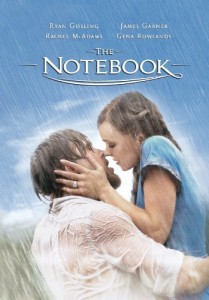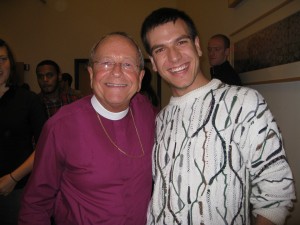This past Tuesday, the Boston University Interfaith Council (the group I run) had an interfaith discussion entitled: “Halloween, Ghosts, and the After(?)life.”
Which is kind of a macabre/depressing/choose-your-negative-adjective-here topic, you’re thinking. But actually-it wasn’t. We had a range of religious traditions represented, from Jewish to Buddhist to Irish Catholic, and we talked about many things–funeral traditions, conceptions of the afterlife, even the role of Facebook in the modern-day grieving process.
We talked about how the Buddhists say a chant for their dead, how the Jews sit shiva , and how the Irish have wakes (which can include, at times, copious amounts of drinking–I say this coming from an Irish Catholic background). And then one of our Buddhist members told us a traditional Buddhist story.
It was about a woman whose infant son had died. She was driven half-mad with grief, going from house to house carrying her dead son in her arms and asking people if they could cure him. The people who came to their doors felt for her, but had to tell her there was nothing they could do to help him–it was too late. Finally she came to the door of one man, who told her that he could do nothing, but he knew someone who could–the Buddha.
When the woman came to the Buddha and presented him with her son, he said he could indeed help her. “All I need,” he told her, “is a handful of mustard seeds.” The woman was relieved–mustards seeds? Those were common enough. But then the Buddha told her one more thing: “They must come from a household that has never experienced death.”
The woman went from house to house again, this time asking for a handful of mustard seeds. At first, the people were happy to give her some–but then she had to ask if their household had ever experienced death. And every time, the answer was yes.
The woman traveled far and wide, searching for one house that could give her the mustard seeds. Finally, one night, she sat down on a hill as it was evening. As it grew dark, she saw the windows of the houses start light up with candlelight. Then, as it grew even later, she saw the lights in the windows go out as people went to bed.
It was then that she realized what the Buddha had been trying to teach her. There is no family who has not experienced death. It is inevitable–our lives are the candles that flicker on and, after a time, are extinguished.
Which some people might find depressing to think about. But, at the same time, there is a beauty in the fact that death is a universal–it is something that we all experience, and grief is something that we all share.
In the story, after the woman came to her realization, she had her son cremated and had a funeral for him. She was able to move on–because she realized she was not alone. All those other houses where she had sought mustard seeds? They had felt pain, too.
This is a concept that applies not just to death, but to every element of being. We are all human–and we share in human truths and emotions and experiences, regardless of our differences. We are all seeking handfuls of mustard seeds, but we might just find each other instead.

